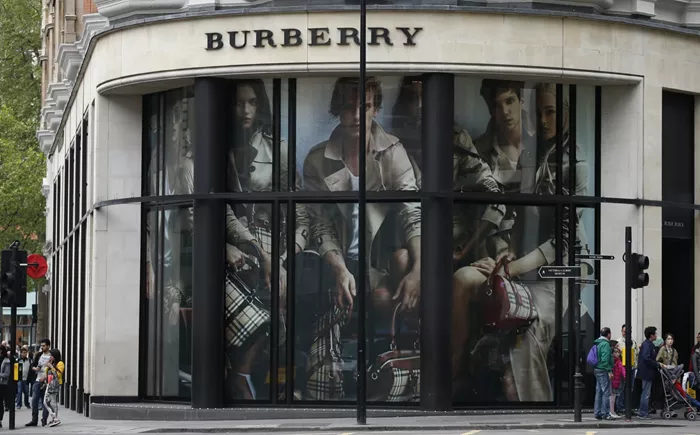In what can only be described as a misguided decision, Burberry stands out for the most audacious share buyback in recent years. Just 12 months ago, the British fashion house proudly announced the completion of a £400m buyback, its second of that size in two years. Now, however, the company finds itself grappling with a dramatic profit collapse. Not only has it been forced to cancel shareholder dividends, but the newly appointed CEO is also emphasizing the urgent need for a “course correction” to stabilize the business.
The 2023 buyback saw shares repurchased at £20 each. As of now, those shares are worth just 868p, marking a significant loss for shareholders.
However, there is a silver lining. The stock price rose by 19% on the day following the announcement of the company’s new direction under Joshua Schulman, the former Coach executive now leading Burberry. Schulman’s strategy marks a departure from his predecessor Jonathan Akeroyd’s attempt to push the brand further upmarket, a move that ultimately led to profit warnings and disappointing results.
Schulman’s approach signals a return to Burberry’s heritage, focusing on its iconic trench coats and outerwear, rather than competing with French and Italian luxury houses in areas like high-end leather goods. While Burberry will continue to price its coats as premium products, handbags will be priced below £2,000, with an emphasis on creating more timeless collections.
Schulman admitted that Burberry had “moved too far from our core” in recent years, with its focus on modernity overshadowing its rich heritage. “Our brand expression was focused on being modern at the expense of celebrating our heritage,” he said—echoing criticisms that fashion experts have been voicing for some time.
Investors were reassured by Schulman’s commitment to maintaining Burberry as a luxury brand, not a mid-market label like Coach. This suggests a potential return to the glory years under former designer Christopher Bailey, with the aim of achieving profit margins in the upper teens percentage-wise.
However, turning around Burberry will take time. The brand has experienced a significant decline, with a half-year pre-tax loss of £80m and revenues down by 20%. This marks a stark contrast to the £219m profit the company posted last year. Schulman has scaled back previous ambitious goals, abandoning Akeroyd’s target of £5bn in annual revenues in favor of a more achievable £3bn, which was Burberry’s revenue just two years ago.
Fund manager Nick Train, a long-time Burberry investor, pointed out that the company’s shares have seen steep declines twice in this century, with the last drop following the 2007-08 financial crisis. On that occasion, the company rebounded spectacularly, with shares rising from £1.60 at the low point to £26 just 18 months ago.
It’s unclear whether Burberry’s decision to invest in share buybacks at such a challenging time was a misstep, or whether it was an effort to boost shareholder value in the face of declining profits. What is certain, however, is that the dramatic shift from a £400m buyback to no dividend in just 13 months is a shock to the system. Burberry’s chairman, Gerry Murphy, who approved the buybacks, may need to explain this strategy in next year’s annual report—assuming he remains in his post.
Related topics:
- Elie Saab’s 2024 Fashion Show: Celine Dion and J.Lo Shine on Stage, Delivering Iconic Hits in Saudi Arabia
- Shriya Baru ’25 Celebrates Her Culture Through Indian-American Fashion Fusion
- Prep Makes a Bold Comeback at NYFW—But It Never Truly Left

